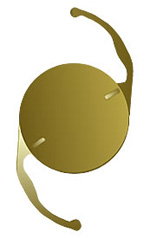Cataract Surgery
 One of the few things guaranteed in life is: if we all live long enough, we will get cataracts. They are a by-product of birthdays. The three vision concerns we worry about as we have birthdays, other than needing glasses, are Cataracts, Glaucoma & Macular Degeneration. The prevalence of Macular Degeneration is 1.5% for the US population over the age of 40; for Glaucoma, the prevalence is around 2% and for cataracts it is significantly higher, reaching levels around 50% by age 80.
One of the few things guaranteed in life is: if we all live long enough, we will get cataracts. They are a by-product of birthdays. The three vision concerns we worry about as we have birthdays, other than needing glasses, are Cataracts, Glaucoma & Macular Degeneration. The prevalence of Macular Degeneration is 1.5% for the US population over the age of 40; for Glaucoma, the prevalence is around 2% and for cataracts it is significantly higher, reaching levels around 50% by age 80.
Simply put, when we are born the natural lens in the eye is crystal clear and as we age it gets cloudy showing signs of early lens changes by the time most of us reach our 50's. A cataract is the clouding of the natural lens which, ultimately, blocks light from getting properly focused on the back of the eye (the retina).
As the cataract worsens it affects both the quality & quantity of our vision. Daily tasks like reading become much more challenging, requiring brighter room lighting than ever before. The contrast of the newspaper seems to get worse every month. Contrast in general gets less and less discernable especially at night. Driving into the rising or setting sun becomes extremely difficult. Glare becomes more of an issue. Those bright halogen headlights and bright streetlights are extremely uncomfortable. All of this is due to light entering the eye and scattering throughout the back of the eye as it hits the cloudy natural lens.
At this point in time, the only remedy is cataract surgery which has become one of the most frequently provided elective surgical procedures in the US ( over 3 million per year) and one with the fewest complications. When your cataract is removed, it is alike to a camera taking a photograph without a lens; the photo would be blurry. Therefore, anyone undergoing cataract extraction receives a new, man-made lens, called an intraocular lens (IOL), to replace their natural lens.
Katzen Cataract Care offers several choices of IOL implants, including advanced technology options, which you may be a candidate for. Contact our surgical counselors to find out more about these sight changing, life-changing treatments!
Once you have made the decision to undergo cataract surgery with Katzen Cataract Care you will have a series of decisions to make related to the type of artificial lens implant you will have. Up until recently everyone who had cataract surgery received a monofocal lens implant. This lens enabled for vision of one distance, typically distances far away. With new innovations a better lens is now available. These lenses are referred to as premium lenses and come in various formats or types.
- Multifocal
- Accomodating
- Toric
 Some of these lenses may even provide the chances of living the remainder of life glasses free! You and your eye doctor will work together to determine the right lens for your eyes. If a premium lens implant is suitable and the chances are success are good you can explore this path. Premium lenses typically come with an extra cost that Medicare does not cover. If you want more independence from glasses than perhaps paying a little extra money makes sense.
Some of these lenses may even provide the chances of living the remainder of life glasses free! You and your eye doctor will work together to determine the right lens for your eyes. If a premium lens implant is suitable and the chances are success are good you can explore this path. Premium lenses typically come with an extra cost that Medicare does not cover. If you want more independence from glasses than perhaps paying a little extra money makes sense.
